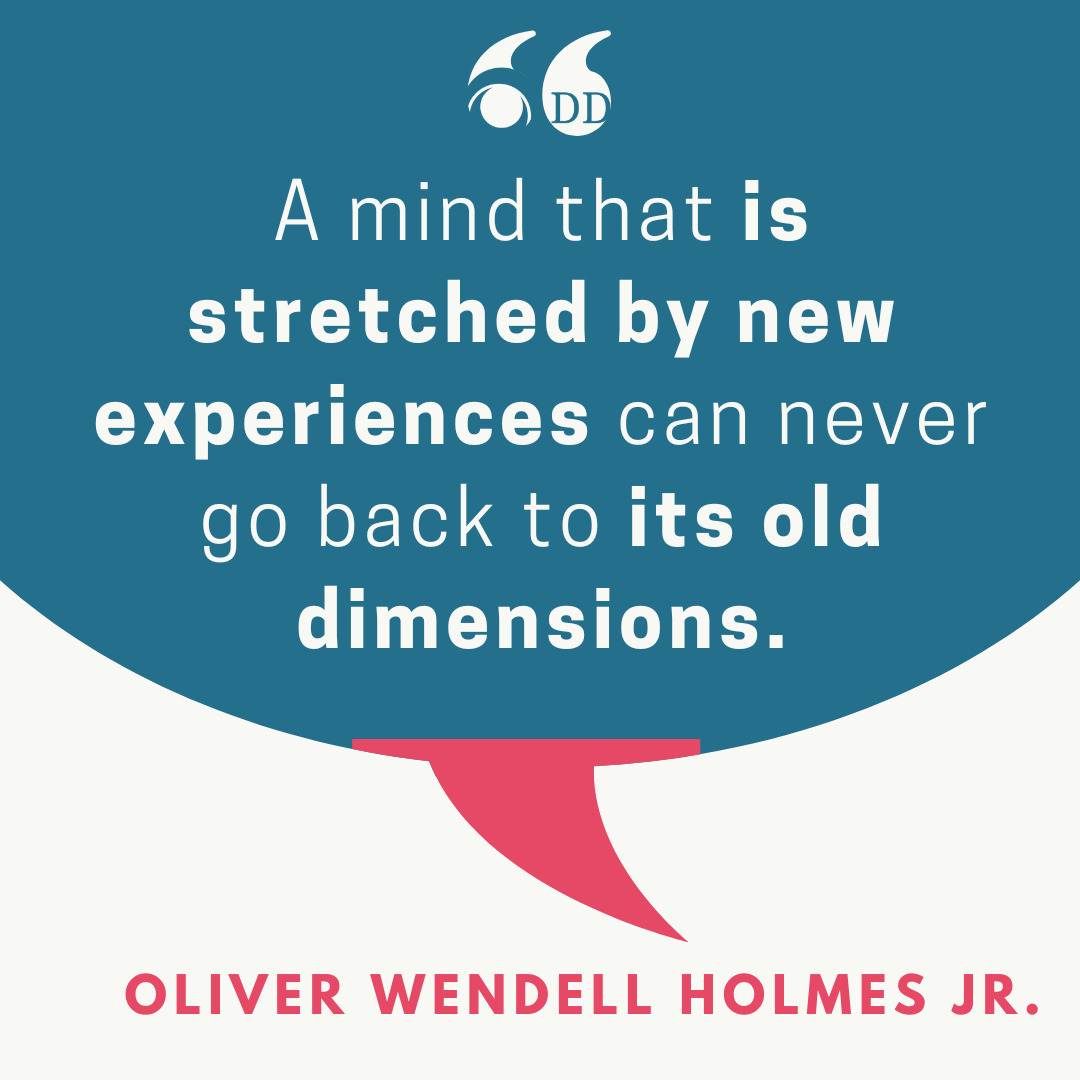Diligent Sunday Newsletter / Issue #17 about Mental Models
Explore the fascinating world of Thinking Systems and discover how to improve decision-making, enhance problem-solving, and increase adaptability. Learn about various thinking systems and their applications, and dive into a curated selection of mental models to fuel your mind.

Introduction
Dear Diligent Sunday Readers,
Another week has passed - tomorrow, we will enter the 20th week of the year, and already over 35.6% of the year has gone by.
I am struggling with the good weather. It has been sunny and around 20 degrees Celsius outside for the last 7-10 days. It's perfect for healthy habits like walking, cycling, and running.
Many of you might feel the same, but whenever the sun is shining outside, I experience a deep sense of FOMO (Fear of Missing Out), and it's hard for me to sit at home at my desk and work.
Luckily, I have found a way to balance both - the need to work and still enjoy enough sunshine:
- I make video calls exclusively using my mobile phone while on the move. Initially, my colleagues found it amusing, but now everyone is accustomed to it. Important note: If you want to do the same, use wired earphones (e.g., Earpods). Modern True Wireless headphones, even the expensive ones, have poor microphone quality in windy and noisy environments.
- I pay even more attention to the productivity and effectiveness of my work. I choose the most direct paths to problem-solving, minimise time spent on conceptualising and coordinating, and ruthlessly prioritise tasks that are truly important for my employer. I eliminate process-related tasks and unnecessary theatrics that I would otherwise engage in to please my colleagues.
- I fully utilise my breaks. Instead of eating during my lunch break, I cycle for 60 minutes. Two meals are sufficient.
Combining these strategies allows me to enjoy the summer and maintain a healthy, sustainable work-life balance.
Interestingly, I feel like I am the only one in my company who consistently follows this approach. So, my call to action is to try it, at least!
I understand that it may not be feasible for every job, but since many of my readers are knowledge workers, some of these strategies can be experimentally implemented.
Thinking in Systems: Mental Models
Now, let's move on to the central theme of this week, starting with this newsletter. I'm unsure if you've considered it, but the neural pathways leading to insights, perspectives, and decisions become more deeply ingrained as you age. You have mental drawers where similar incidents are repeatedly dealt with similarly.
Each person has unique thinking patterns and systems.
I have them too, and I find it interesting to break out of these patterns by learning about other people's thinking systems.
In the productivity scene, this is often referred to as "Mental Models,", "Thinking Systems," or even "Thinking Errors/Fallacies."
I have been collecting such systems for years, and today, I thought I would share a curated selection of them in this newsletter, presented as a listicle.
I hope you will find inspiration in it!
I wish you a fantastic start to the week.
— Martin from Deliberate Diligence.com
"The mind is not a vessel to be filled, but a fire to be kindled."
- Plutarch
Deliberate Diligence Level 03: Fuel your Body & Mind
Topic: Mental Models

Today at a Glance:
- 1️⃣ The Why: Why consider thinking systems at all?
- 2️⃣ The How: How can you implement Thinking Systems?
- 3️⃣ The What: What are some good thinking systems, and where can you learn more?


1️⃣ The Why: Why consider thinking systems at all?
The problem with thinking systems is that finding and adopting a fantastic system is insufficient. These thought processes are far too subtle and subconscious within us.
However, consciously and logically exploring new thinking paths can be helpful during critical decisions or reflections. This won't instantly make you a better thinker, but it will assist you in the specific situation.
Here are two simple examples:
- When solving problems, I intuitively think about adding something to the situation rather than subtracting. Better might be following the motto: "Subtraction Beats Addition". For instance, if I feel overwhelmed with household chores, the solution isn't to spend more time on chores, cleaning, and maintenance but to own fewer things that require upkeep. Similarly, when a team is discussing a problem in a work setting, it's sometimes better to set aside one's opinion instead of being the twelfth person to add their opinion. My father always said, "Too many cooks spoil the broth!" Doing nothing is a valid option.
- When contemplating what to focus on within an array of options, I intuitively think about the focal point. However, it's also practical to consciously consider what one does not want to focus on. This significantly narrows down the options and simplifies the decision-making process.
Chapter 3️⃣ describes more systems. It's worth delving into them further:
- Improved decision-making: By understanding and implementing various thinking systems, you can improve your decision-making process by considering multiple perspectives and avoiding common cognitive biases.
- Enhanced problem-solving: Thinking systems can help you break down complex problems into manageable parts and approach them more systematically, ultimately leading to better solutions.
- Increased adaptability: By learning different thinking systems, you become more adaptable to new situations and can use these systems as tools to navigate through various challenges.
- Greater self-awareness: Understanding how you think and recognising your own cognitive biases can lead to increased self-awareness, which is essential for personal growth and development.
- Better communication and collaboration: By understanding and appreciating different thinking systems, you encourage open-mindedness and can collaborate more effectively with others.
It's like having a mental toolbox!
"You have power over your mind - not outside events. Realize this, and you will find strength."
- Marcus Aurelius

2️⃣ The How: How can you implement Thinking Systems?
As mentioned, a new mindset cannot be ingrained in your mind overnight. No matter how fascinating something you read in a book or on the internet when you need it, you still tend to fall back into old thought patterns.
Therefore, the goal is to become more aware of alternative ways of thinking and consciously apply them in situations where you believe new perspectives and ways of thinking could be helpful.
To implement thinking systems, follow these steps:
- Educate yourself: Learn about various thinking systems, their principles, and their applications. This can be done through reading books or social media.
- Reflect on your thinking patterns: Identify your cognitive biases and notice the areas where you rely on a single thinking system. This will help you recognise when to apply different thinking systems in various situations.
- Practice using different thinking systems: Apply the thinking systems you've learned to real-life situations and challenges. This may require stepping outside your comfort zone and experimenting with new approaches.
- Seek feedback: Share your thought process with others and ask for their input. This will help you refine your understanding of different thinking systems and learn how to apply them more effectively.
- Continuously improve: As with any skill, mastering thinking systems requires practice and continuous improvement. Keep learning and incorporating new thinking systems into your decision-making and problem-solving processes.
It's particularly effective to ask people whose approaches you admire (e.g., colleagues at work) about their thinking. I've experienced some of the most fantastic "aha" moments in such conversations.
"The mind is like a parachute, it works best when it's open."
- Dalai Lama

3️⃣ The What: What are some good thinking systems, and where can you learn more?
Here are some popular thinking systems and resources to explore further:
- Systems Thinking: A holistic approach to analysing complex systems and understanding their underlying patterns. Resources: "Thinking in Systems" by Donella H. Meadows, "The Fifth Discipline" by Peter Senge.
- Design Thinking: A human-centred approach to solving problems, emphasising empathy, experimentation, and iteration. Resources: "Change By Design" by Tim Brown, IDEO's online resources.
- Critical Thinking: A method of evaluating information and arguments to make well-informed decisions. Resources: "The Art of Thinking Clearly" by Rolf Dobelli, "Learning to think things through" by Gerald Nosich.
- First Principles Thinking: A method of breaking down complex problems into their most fundamental elements and building solutions from the ground up. Resources: Elon Musk's interviews, biographies, and blog articles on Google.
- Mental Models: Frameworks that help us understand and interpret the world around us. Resources: "Super Thinking: The Big Book of Mental Models" by Gabriel Weinberg and Lauren McCann, Farnam Street's Mental Model resources. Also: https://www.sloww.co/mental-models/.
- Social Media Creators: Ben Meer, Alex Brogan, Sahil Bloom
Exploring and incorporating these thinking systems into your daily life can enhance your decision-making, problem-solving, and overall cognitive abilities.
"The greatest discovery of all time is that a person can change his future by merely changing his attitude."
- Oprah Winfrey
Here are some exemplary mental models and thinking systems that I find particularly intriguing:
- Spaced Repetition: Combat the forgetting curve by revisiting new information at spaced intervals.
- Razors: Use heuristics to simplify complex problems and make decisions with incomplete information. Some examples are Occam’s razor (the simplest explanation is usually the best), Hanlon’s razor (never attribute to malice what can be explained by stupidity), and Hickam’s dictum (patients can have more than one disease).
- False Causality: Avoid assuming correlation implies causation; look for evidence of causal mechanisms and alternative explanations.
- Calendar-Priority Alignment: Ensure your calendar reflects your priorities, using it as a to-do list for high-priority tasks.
- 10/10/10 Rule: Evaluate decisions based on their impact 10 minutes, 10 months, and 10 years from now for well-rounded outcomes.
- Leverage: Apply force or effort strategically to produce outsized results.
- Keep Your Identity Small: Minimise emotional responses by letting as few things define your identity as possible.
- The Map is not the Territory: Question assumptions and test models against reality, as maps can be misleading, incomplete, or outdated.
- Good and Bad Procrastination: Focus on tasks that matter in the long run and avoid wasting time on tasks with no long-term significance.
- Decomplication: Simplify problems by boiling them to their core elements and avoiding artificial complexity.
- Compounding: Understand that growth can accelerate as something gets bigger and has more time, such as compound interest.
- Choice Paradox: Recognise that fewer options can lead to greater happiness and that freedom doesn't always equal more choices.
- Reversible vs Irreversible Decisions: Make irreversible decisions slowly and deliberately while making reversible decisions quickly.
- Tim Ferriss Discomfort Razor: Embrace uncomfortable conversations for personal growth and success.
- Spotlight Effect: Understand that people are not paying as much attention to you as you think, and use this knowledge to embrace freedom.
- Help This Person: Seek ways to help others to accelerate your career and improve your quality of life.
- 2-Minute Rule: Complete tasks that take less than two minutes immediately to prevent mental overload.
- Sunk Cost Fallacy: Let go of past investments that no longer serve you and focus on current opportunities.
- Second-Order Thinking: Consider the long-term implications and feedback loops of actions to avoid unintended side effects and plan for the future.
- Falsifiability: To avoid dogmatism and confirmation bias, ensure statements or hypotheses can be proven wrong through empirical observation or experiment.
- Via Negativa: Improve life by subtracting negative elements rather than adding new habits or solutions.
- Circle of Competence: Focus on areas that match your skills and expertise, and avoid overconfidence in unfamiliar domains.
- Law of the Instrument: Avoid over-reliance on familiar tools or methods and consider alternative approaches.
- Probabilistic Thinking: Quantify uncertainty and weigh the likelihood of different outcomes to make better judgments and update beliefs based on new evidence.
- Consider Unintended Consequences: Assess potential unplanned outcomes and second-order effects before making decisions.
- 10% Hater Rule: Accept that some people will always find a way to take things personally and treat them as a mathematical certainty.

That's it for this week!
I wish you a purposeful and inspiring start to the 20th week of the year!
Feel free to add tips and thoughts to this page's comment section, Twitter or LinkedIn!
Best regards,
-- Martin from Deliberate-Diligence.com

Discussion